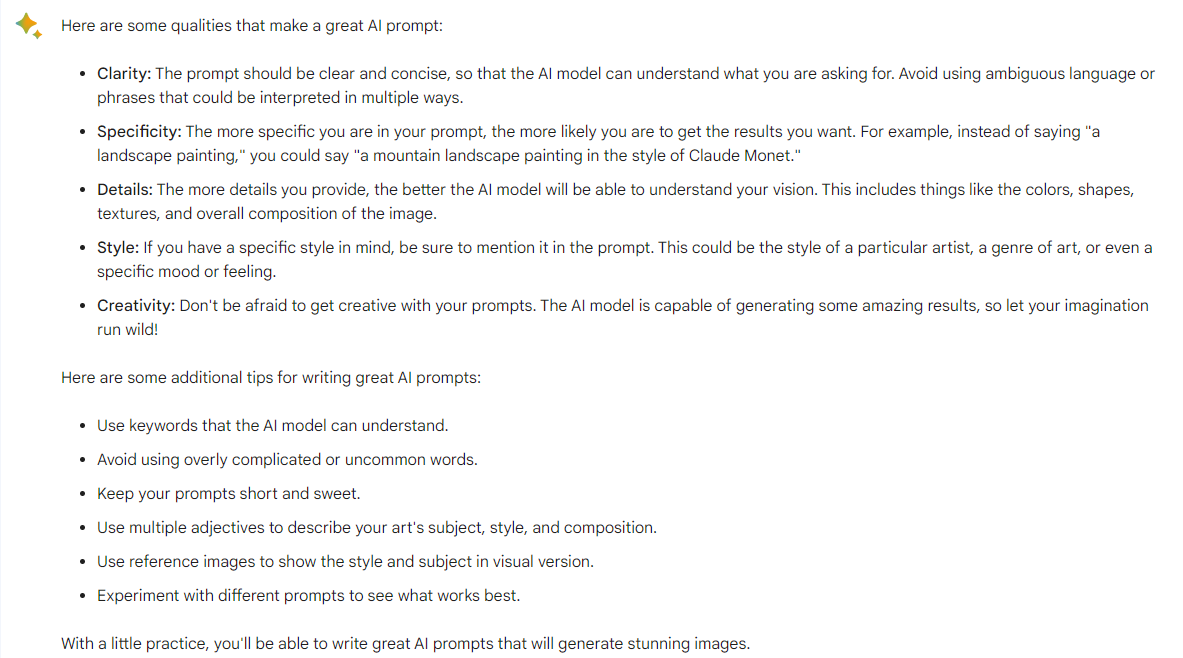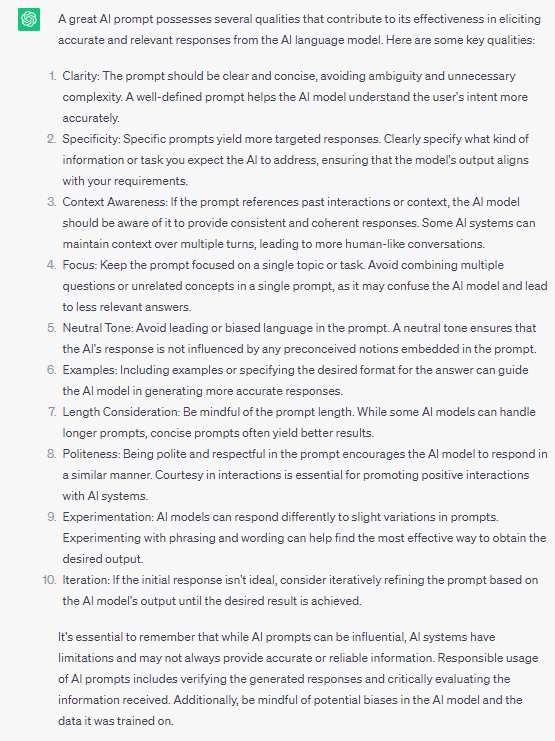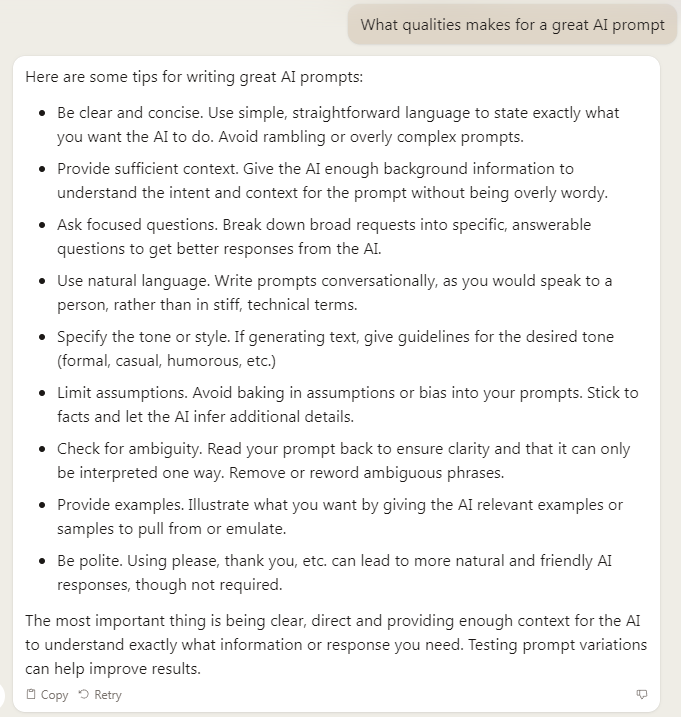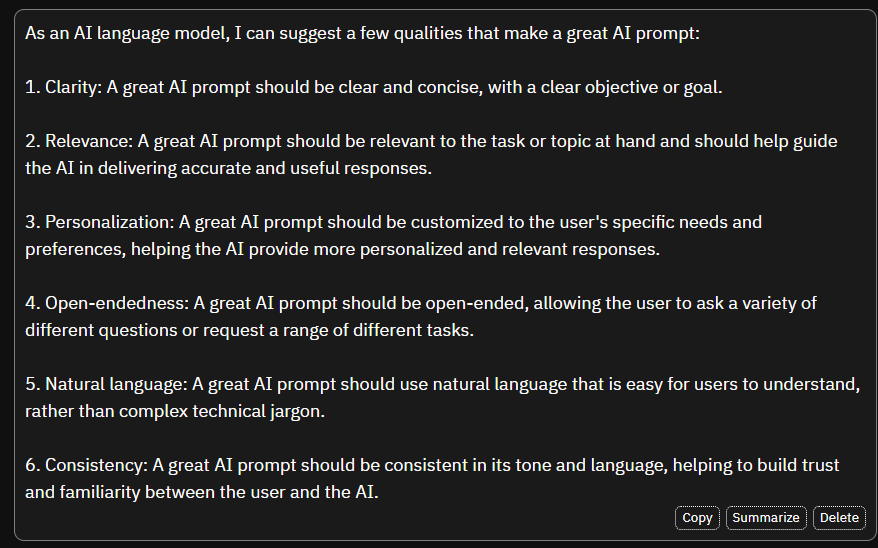Bard's advice about prompts

ChatGPT advice about prompts

Claude's advice about prompts

Deepai's advice about prompts


Prompt-crafting is traditional rhetorical thinking performed in a new rhetorical context: human to machine interaction. While communicating with a machine sounds decidedly post-humanistic, being good at it will be a very useful skill as more and more services become bot-based. Moreover, a great many college-graduate jobs will require prompt-crafting as part of the expected workflow. So an AI-enhanced writing process will likely benefit our students more than a traditional writing process will. If nothing else, AI prompt-crafting will give them ample practice writing and revising in an instantaneous feedback loop.
To get an AI to do what you want, you need to know exactly what you want. If you don't, the machine will either ask for clarification before it does anything or it will make what amounts to a probabilistic guess and then ask how it might be of further assistance -- these AIs are very polite. It will also explain what it did, which can help you refine your prompt or teach you how to do something on your own the next time around.
While the process is designed to be iterative, the more precise, detailed, jargon-free, assumption-free, and bias-free the original prompt is, the fewer iterations you will need.Claude offered that sentence when I requested it fix the syntax of the original. Writing this footnote took me much longer than Claude's edit took it. You also need to be clear about who the intended audience is, the reading level and style required, and the format you need.
Thus the art of prompt-crafting is very much like rhetorical thinking of old.
You can of course Google "What makes a great AI prompt?" and you should, but you should also ask the AIs themselves, since presumably they know what they want.
Bard's advice about prompts

ChatGPT advice about prompts

Claude's advice about prompts

Deepai's advice about prompts

Guidance from Openai, written by people.
There are also AI tools that will help you craft effective prompts:
AI prompt generator
Arvin writer prompts